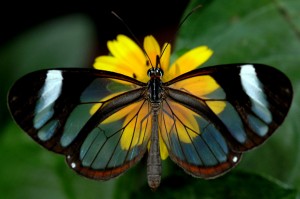Today is my birthday and it has me thinking about, what else, birth. Where do things start? We know where, when and how our lives started. Our birthday is a celebration of that. But what about further back? Ok, we know how our parents started, and maybe even their parents too. But what about your parents’ parents’ parents? That we might not know. Sure, we can guess, or if not guess we can imagine. For instance, I imagine that my ancestors were all professional mustache groomers. But can you imagine where the first humans, and thus the first mustache grooming, started?
If we ask the question, “where do we come from” it starts off as a personal question, but the further back in time you go, the question changes. It turns from something personal to something genealogical to something historical. If you go back far enough it really stops seeming like a question about history and more a question about biology.
Where did humans come from? Probably sub-saharan Africa about 100k years ago (1). The answer is a part of our history but we can only know the answer because of science (specifically molecular phylogenetics), which is what makes this a question about biology.
But of course this isn’t where we started. We can go further back in time (click here to read the rest of this article with dramatic time travel music).
In addition to being humans, we are also vertebrates (as are all other fluffy, feathery, scale-y and fishy animals that have spinal cords). Where did these animals come from? Because that’s the TRUE story of our origin. That would be way back in the Cambrian explosion 550 million years ago (2). For perspective, 550 million years is enough time for the human race to originate and flourish 5500 times.
Did we really begin 550 million years ago? Is that where it all started? No. We can go even further back (restart the music if it finished by now, you slow reader).
In addition to being animals that have backbones we are also just animals (a.k.a. Metazoans). Animals originated a little further back. 640 million years ago (3). If 550 mya is 5500 human civilizations then 640 million years ago is 6400 human civilizations or enough time for dinosaurs to originate, dominate the planet and then go extinct 4 times over. It’s so long you might almost finish a Hobbit movie marathon in that time.
640 million years ago. Don’t believe that either! That’s just the origin of animals. What about the origin of multicellular life, or eukaryotic life? Let’s skip allllll the way to the beginning of cellular life. We have evidence for cellular life that goes back over 3 billion (Billion!) years ago (4). That’s enough time for 30,000 human civilizations, 30 ages of dinosaurs, and 5 origins of animals. It’s also enough time to come up with exactly 387,462 jokes about things that take a really long time.
Do you believe that? 3 billion years ago. Seriously, do you believe it?
I do. I choose to believe that this is when we originated. However, some people have other ideas. Panspermia is the idea that life on earth actually originated elsewhere in the solar system (5). The article I just cited states very strongly that panspermia is probable. However, as this is a physics paper it goes beyond my ability to evaluate it critically. All I know is that panspermia is a valid scientific idea but has not taken hold as the predominant hypothesis for the origins of life on earth. So, I choose to believe that life originated 3 billion years ago in the so-called “primordial soup”. If I chose to believe anything else (for example, the many theistic explanations for the origins of life), I would not be satisfied with the explanation. It wouldn’t make me feel good about our origins.
But did you notice something? Most of that previous paragraph isn’t about science at all. It’s about what I choose to believe. We went so far back in time that what was once a question about science turns back into a question we seek an answer for purely personal satisfaction. When you think about it, the significance of the origins of life is almost as important to us as our own personal origins.
Also, a happy birthday to @AriesSpears, @WayneNewtonMrLV, Alec Baldwin, @MrAdamScott, @SebastianBach, @EddieMurphy, David Hyde Pierce and @TonyOrlando.
Dominic Evangelista is a PhD candidate studying the biodiversity and systematics of the cockroaches of the Guiana Shield. Follow him on twitter @Roach_Brain or ask him a question about cockroaches!
Sources:
(1) https://www.cell.com/ajhg/abstract/S0002-9297(08)00255-3
(2) https://mbe.oxfordjournals.org/content/22/11/2275.full
(3) https://download-v2.springer.com/static/pdf/566/art%253A10.1007%252Fs13127-011-0044-4.pdf?token2=exp=1427977176~acl=%2Fstatic%2Fpdf%2F566%2Fart%25253A10.1007%25252Fs13127-011-0044-4.pdf*~hmac=dca8ecf8959ddd944852c9b189aab59e9a28d6a21d7b38e2f55adf3aaf1921f5
(4) https://www.scientificamerican.com/article/when-did-eukaryotic-cells
(5) https://www.worldscientific.com/doi/abs/10.1142/S0217732313300097


